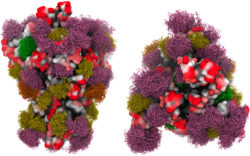The Pfizer COVID-19 vaccine is now available for children ages 5-11. While approval has prompted many parents to begin getting their children vaccinated, some parents are reluctant to get their children vaccinated just yet. A Kaiser Family Foundation survey in October found that 27% will vaccinate their children “right away.” A third of parents, however, said they will “wait and see” how the vaccine is working, three in 10 said they definitely won’t get their child vaccinated, with 5% saying they will only do so if their school requires it.
Jayne Morgan, a cardiologist and executive director of the COVID Task Force at Piedmont Healthcare Corp., which owns Piedmont Athens Regional, talked to Flagpole about questions and common concerns posed by parents as they navigate their decision. Morgan produces a series of one-minute videos answering questions about COVID and vaccines called the “Stairwell Chronicles.” View them on Twitter @DrJayneMorgan or by searching her name on YouTube.
Flagpole: Many people are worried that this vaccine was developed so rapidly that we don’t have a lot of data about how safe it is for children.
Jayne Morgan: It’s been almost two decades in the works, actually. I think it is a great testament to the discipline and dedication of science and the preparedness of science. The children’s studies are what we call “bridging down” studies, which means the vaccines are not specifically designed for children. They’re designed for everyone. So when that happens, we generally start in the adult population and then bridge down… utilizing the data from the next group to extrapolate to the group that you’re studying. So, in that way, we have a lot of safety data on the vaccines. They’ve been given to 2 billion people all over the world.
FP: Why should parents get their children vaccinated?
JM: It’s true that most children who are infected with the virus have only mild symptoms and children rarely die from the disease, although certainly we have seen deaths, many deaths actually, especially with the Delta variant, and any death is tragic. What scientists and health officials are recommending is that we want to remember that the vaccine prevents a lot of infections, and these infections can be disruptive to your school, also cause hospitalizations, and you risk developing long haul syndrome, which we see in children as well. It can interfere with their learning process and create absenteeism.
That’s the kind of thing that we really want to always keep in mind, because we are still in a pandemic. We still have less than 60% of the population fully vaccinated, and even though we see the Delta variant regressing somewhat, our numbers are still incredibly high. We are not in any way out of this pandemic.
I think parents should continue to keep their guards up. We had more than 8,000 kids between the ages of 5-11 who were hospitalized with COVID-19 because of serious illness.
FP: In terms of vaccine dosage for children, why is age the most important consideration?
JM: It’s not about weight. It’s about the maturity of your immune system and where your immune system is in development. Younger children can have a more robust response because of where their immune system is in development… We always want to give the least amount of medication that we can have for the absolute maximum effect, and so that’s why you see this dose, at a third of the dose [compared to adults] in children, and we see that their efficacy was 90.7% with one-third of the dose.
FP: Should parents be concerned about myocarditis as a possible side effect of the vaccine?
JM: We really saw no incidences of myocarditis in younger age groups in these Pfizer trials. That being said, it is rare that there really weren’t enough people enrolled [in the study] to maybe pick up a signal like that. So we certainly recognize that the sample size probably wasn’t big enough to pick up myocarditis, but we also are noting that it doesn’t seem to occur or certainly doesn’t seem to occur as frequently in younger children. One thing we are concerned about is that the COVID-19 virus itself causes myocarditis, and so we want to make certain that we are protecting everyone from all of the deleterious effects of the virus.
FP: What is more risky for children, getting the vaccine or getting COVID-19?
JM: [Getting COVID] is not innocuous. You risk long haul syndrome, you risk hospitalization. you risk myocarditis. You’re taking a risk, by and large. You probably will do well, but it’s sort of like putting one bullet in the chamber and spinning it… So if you do not get your child vaccinated, you’ve got that bullet in the chamber spinning. We have no way of determining whether your child is going to go on to [have] severe disease or not. We certainly know that children with medical complications, including obesity, are at increased risk of severe disease if they were to contract COVID, and we certainly want those children with any underlying medical conditions to get vaccinated, because they are even more vulnerable.
FP: What types of medical conditions make children more susceptible to COVID?
JM: Any child with an underlying medical condition. That includes obesity. That includes asthma. So if your child has either of those two things, which can be common, unfortunately, in children, that is an underlying medical condition. If your child is taking a prescription medication on a regular basis, for any reason, that is an underlying medical condition, and your child is at increased risk.
Like what you just read? Support Flagpole by making a donation today. Every dollar you give helps fund our ongoing mission to provide Athens with quality, independent journalism.










